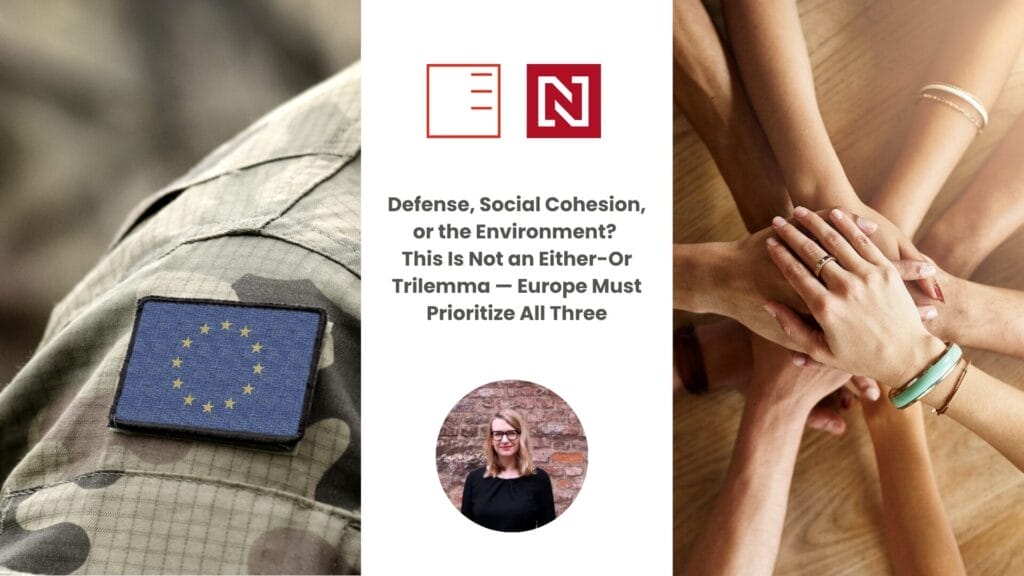
Deník N | Defense, Social Cohesion, or the Environment? This Is Not an Either-Or Trilemma — Europe Must Prioritize All Three
More info 17. 3. 2025
17. 3. 2025
Building a Europe that is militarily resilient, socially cohesive, and prepared for climate change comes with many challenges. Klára Votavová, Associate Research Fellow at the EUROPEUM Institute, shared her insights with Deník N.
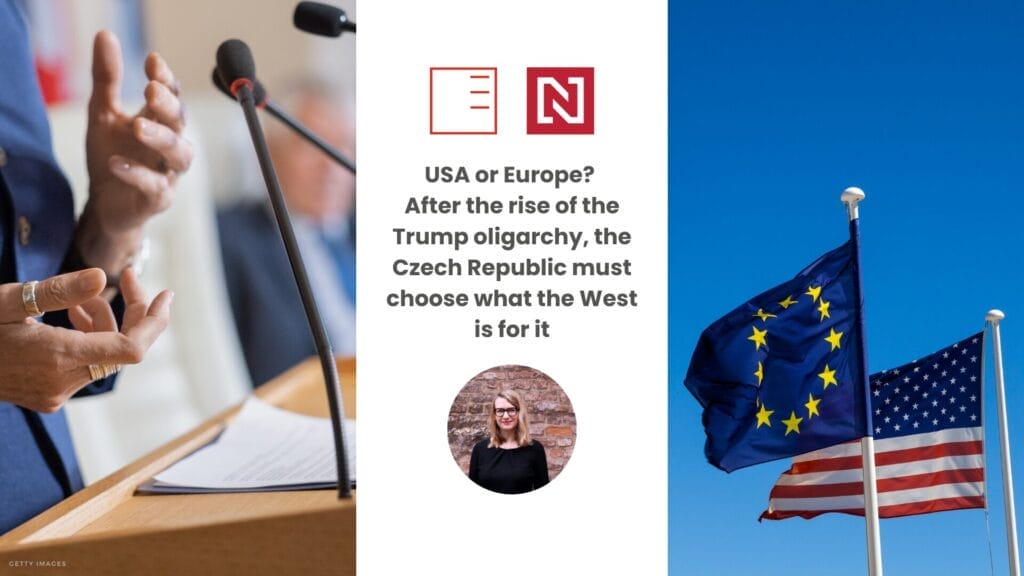
Deník N | USA or Europe? After the rise of Trump's oligarchy, we Czechs have to decide what the West means for us
More info 10. 2. 2025
10. 2. 2025
After Donald Trump took office as US President, the slogans of Czech politicians proclaiming their affiliation with the West raise the question of what kind of West Czech politicians, including Prime Minister Fiala, are actually claiming to belong to. Specifically, whether they mean Europe or Trump's America. Klára Votavová, researcher at EUROPEUM Institute, commented for Deník N.
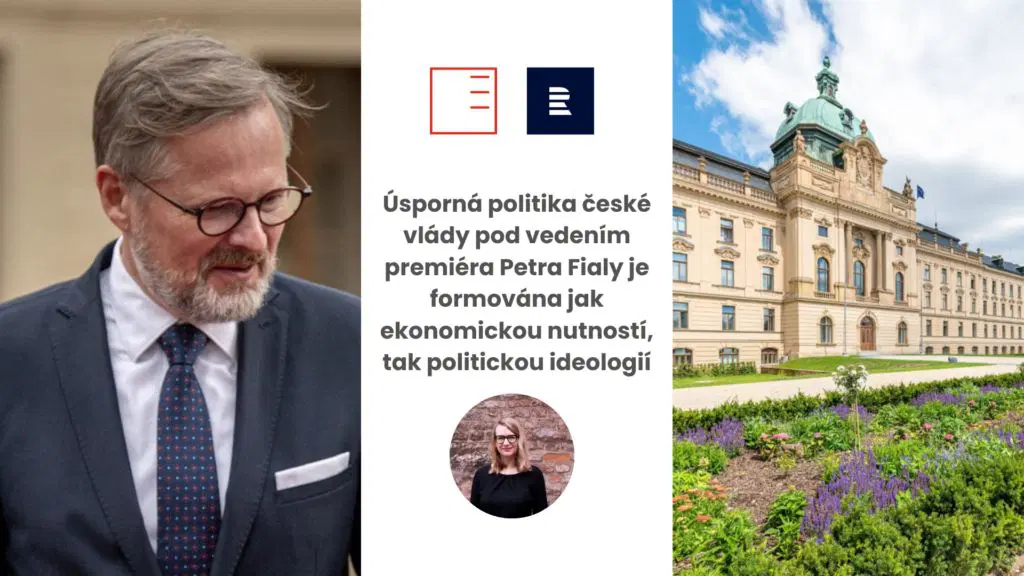
Radio Prague International | The Czech government's austerity policies under Prime Minister Petr Fiala are shaped by both economic necessity and political ideol
More info 23. 10. 2024
23. 10. 2024
Rising inflation, stagnant wages and the housing crisis are fuelling discontent. Meanwhile, the deficit continues to grow without significant investment in long-term economic growth. Klára Votavová, an associate research fellow at EUROPEUM Institute, commented on the situation for Radio Prague International.
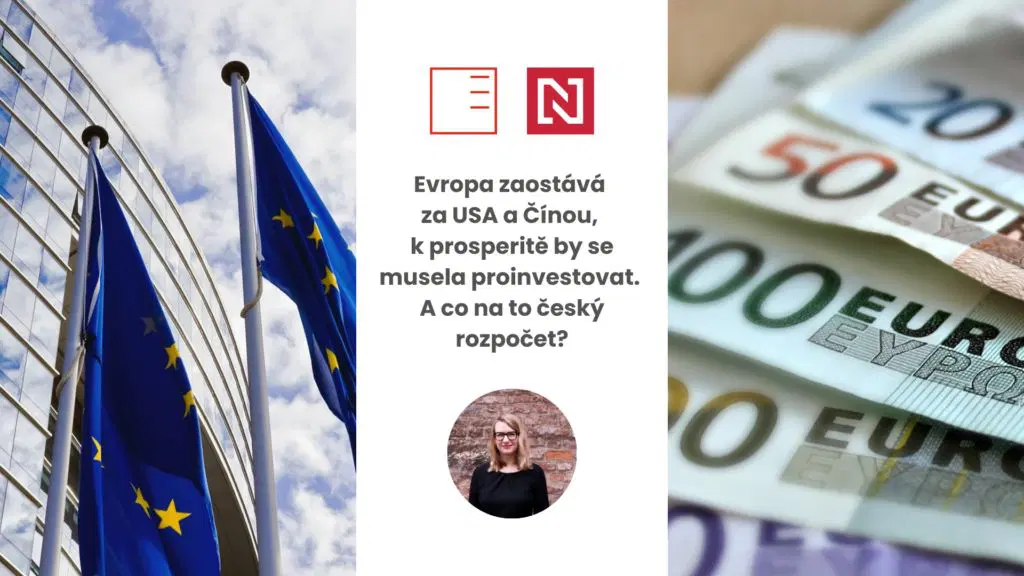
Deník N | Europe is lagging behind the US and China, it would have to invest to prosper. What does the Czech budget has to say to that?
More info 19. 9. 2024
19. 9. 2024
In a report to the European Commission, Mario Draghi, former Italian Prime Minister and head of the European Central Bank, warns that without massive investment in green technology, digitalization and defense, Europe will lose its competitiveness. The report was commented by Associate Research Fellow at EUROPEUM Institute Klára Votavová.
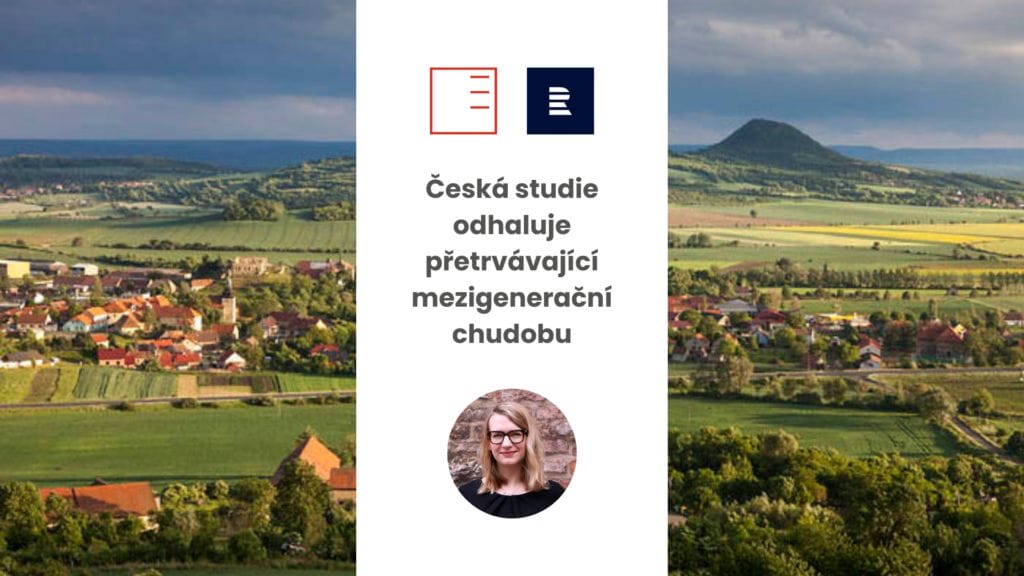
Czech Radio | Czech study reveals persistent poverty across generations
More info 31. 7. 2024
31. 7. 2024
A recent analysis by the Czech Statistical Office found that children from low-income families often remain in the lower income brackets as adults. Over a third of those who experienced childhood financial hardship continue to be among the least wealthy. Klára Votavová, an Associate Research Fellow at EUROPEUM Institute, discussed why Czechia struggles with persistent poverty and the impact of education on social status in an interview for Czech Radio.
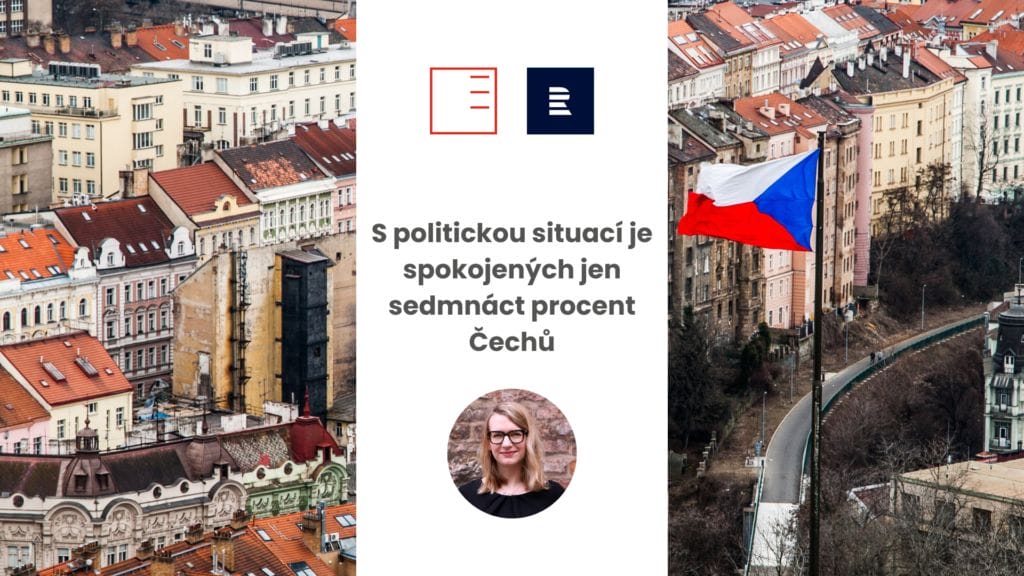
Czech Radio | Only seventeen percent of Czechs satisfied with Czech politics
More info 29. 7. 2024
29. 7. 2024
A poll for Czech Television shows that only 17 percent of Czechs are content with their political representation. Public discontent has intensified due to recent austerity measures intended to address the public deficit, with significant concerns over inflation, increasing living costs, energy price policies, and the government's poor communication. Klára Votavová, an Associate Research Fellow at EUROPEUM Institute, spoke to Czech Radio about the roots of this distrust and how Fiala's government plans to respond ahead of the 2025 parliamentary elections.

Policy Brief | Were Czech industrial policy interests reflected in EU 2024-2029 strategic agenda discussions?
More info 27. 6. 2024
27. 6. 2024
In light of the recent return of industrial policy to the global and EU stage, this policy brief outlines how Czech interests in this policy were reflected in the debates leading up to the adoption of 2024-2029 EU strategic agenda. First, it strives to define Czech industrial policy interests, outlining two alternative approaches to how they can be perceived. The liberal approach follows the long established consensus, according to which Czechia – as a very open, export oriented economy – should promote above all a seamless Single Market and free trade. Writes EUROPEUM Institute researcher Klára Votavová in her Policy Brief.
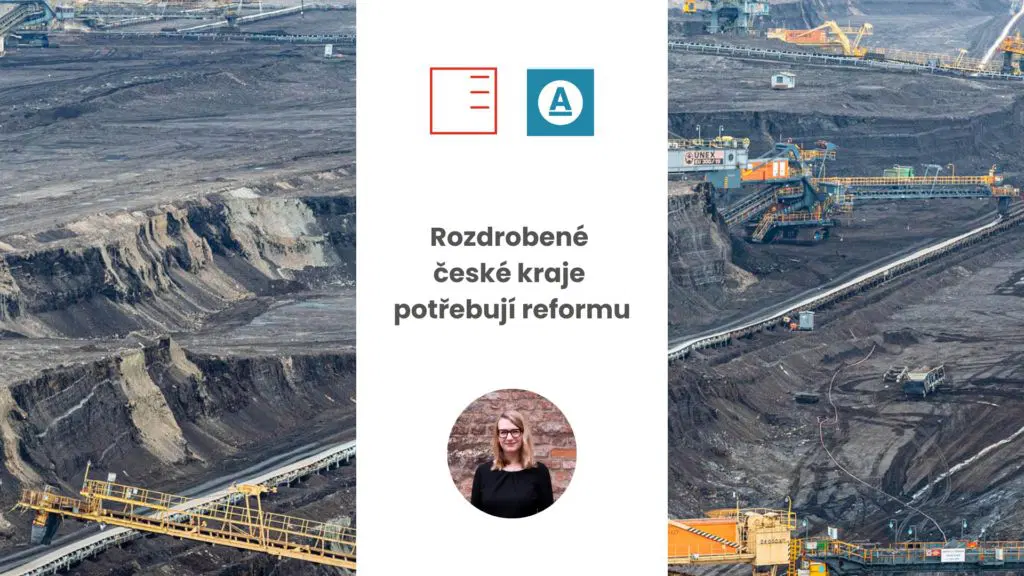
Aktuálně.cz | Fragmented Czech Regions Need Reform
More info 25. 6. 2024
25. 6. 2024
In the autumn, regional council elections will be held. The existence of 14 regions in the Czech Republic, however, does not have a long tradition – they were only established in 2000, partly due to the anticipated entry into the European Union. This arrangement is now heavily criticized for their fragmentation, low and duplicative administrative capacities, and the associated negative impacts on the state budget. Klára Votavová, a researcher at EUROPEUM Institute, presents in her commentary on research on the capacities of the state and regions to draw from the Just Transition Fund, using the examples of the Karlovy Vary and Moravian-Silesian regions.
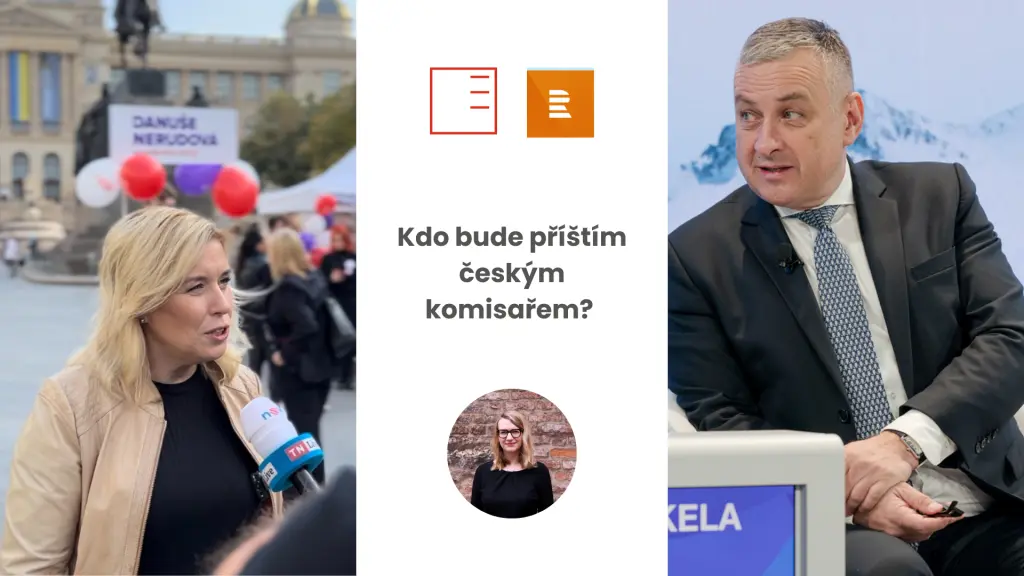
Český rozhlas | Who will be the next Czech commissioner?
More info 18. 6. 2024
18. 6. 2024
The Mayor's party, who have the right to nominate a European Commissioner under the Czech coalition agreement, have announced that they will nominate both Danuše Nerudová and Jozef Sikela for the position of the next Czech European Commissioner. The government is due to decide on a candidate by the end of August. Can the Czech Republic get a highly sought-after economic portfolio? What are the advantages for the country if it gets it? And how difficult is the process of questioning candidates in the European Parliament, the so-called grilling? Klára Votavová, researcher at EUROPEUM Institute, answered these and other questions in an interview for Czech Radio.
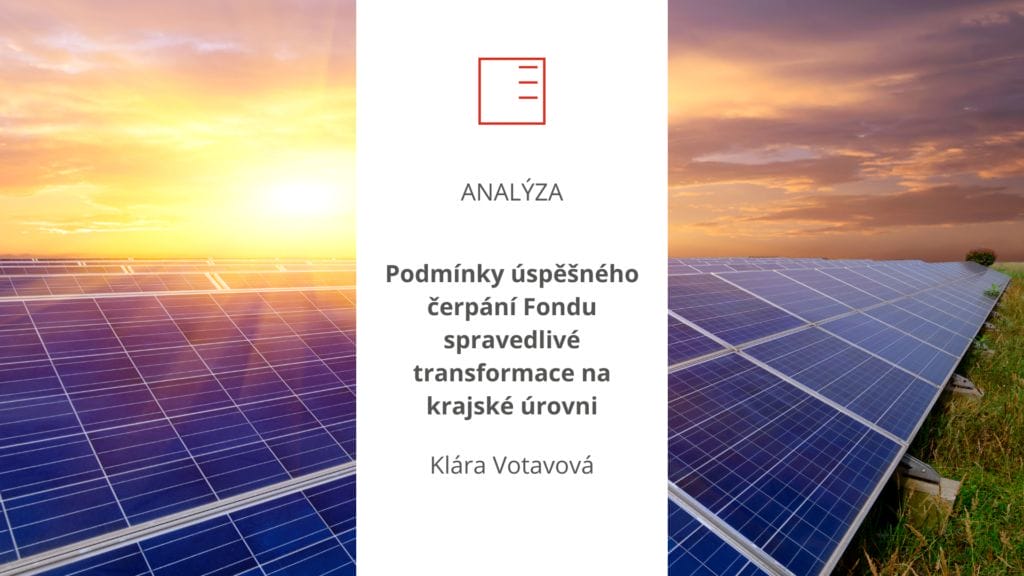
Analysis | Conditions for Regional Preparedness to Draw on the Just Transition Fund
More info 18. 6. 2024
18. 6. 2024
Through interviews with officials and other relevant actors at national and regional level, this research report identifies conditions for regional preparedness to draw on the Just Transition Fund. Researcher at EUROPEUM Institute Klára Votavová compares the situation in two of the three Czech regions that are drawing on the Fund: Moravian-Silesian and Karlovy Vary Region.
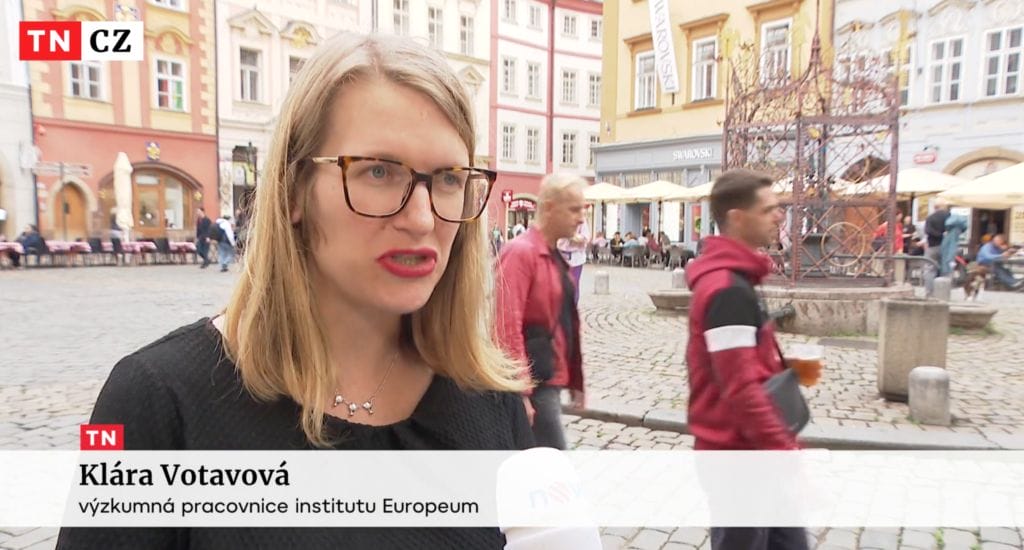
TV Nova | How does the EU protect consumers?
More info 4. 6. 2024
4. 6. 2024
The elections to the European Parliament start in the Czech Republic on Friday 7 June. Consumer protection has been one of the issues that have occupied MEPs for the past five years. But the original priority has had to give way to a number of current crises. Klára Votavová, a researcher at EUROPEUM Institute, commented for the main evening broadcast on TV Nova.
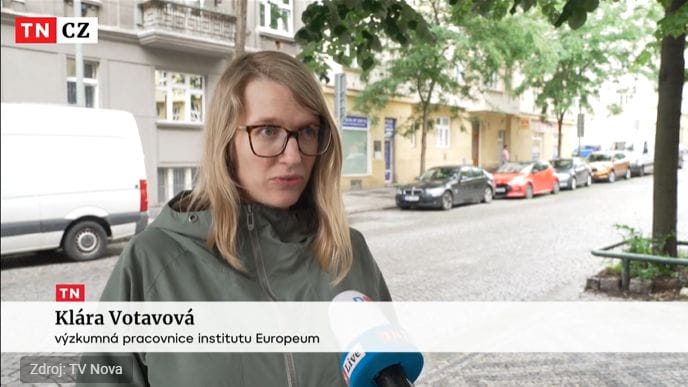
TN.cz | Possible changes in European subsidies
More info 28. 5. 2024
28. 5. 2024
The European Parliament elections are less than two weeks away, and one of the main topics will be the subsidy system. A number of experts are calling for it to be changed, and questions arise as to where the European Union will get the money for subsidies. The transformation of the EU towards green technologies could limit financial resources for structural funds, which would have a negative effect mainly on poorer countries, including the Czech Republic. Economists also point to possible financial problems for the EU after the departure of Great Britain, one of the biggest contributors. Klára Votavová, a researcher at the EUROPEUM Institute, commented on the situation for TV Nova.